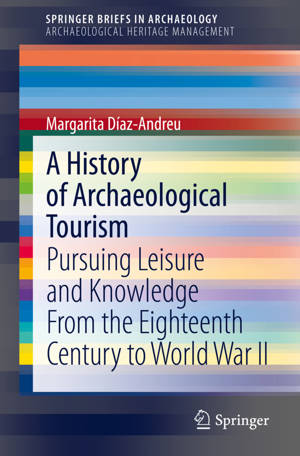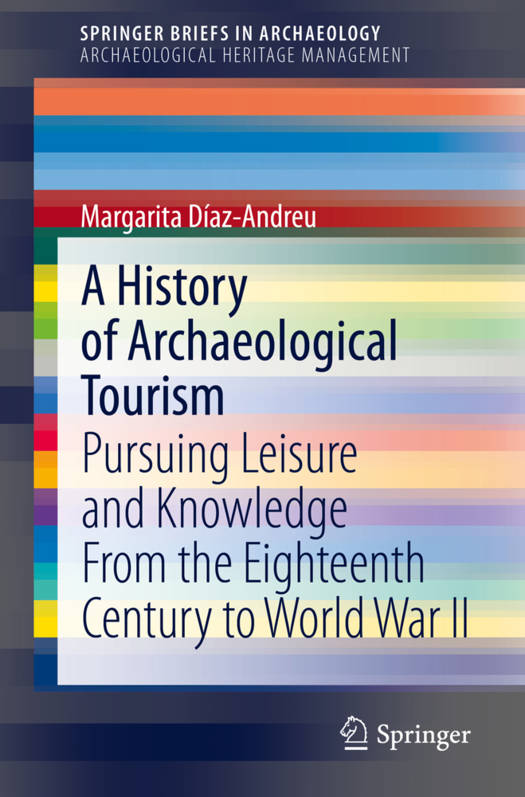
Door een staking bij bpost kan je online bestelling op dit moment iets langer onderweg zijn dan voorzien. Dringend iets nodig? Onze winkels ontvangen jou met open armen!
- Afhalen na 1 uur in een winkel met voorraad
- Gratis thuislevering in België vanaf € 30
- Ruim aanbod met 7 miljoen producten
Door een staking bij bpost kan je online bestelling op dit moment iets langer onderweg zijn dan voorzien. Dringend iets nodig? Onze winkels ontvangen jou met open armen!
- Afhalen na 1 uur in een winkel met voorraad
- Gratis thuislevering in België vanaf € 30
- Ruim aanbod met 7 miljoen producten
Zoeken
A History of Archaeological Tourism
Pursuing Leisure and Knowledge from the Eighteenth Century to World War II
Margarita Díaz-Andreu
Paperback | Engels | SpringerBriefs in Archaeology | SpringerBriefs in Archaeological Heritage Management
€ 58,45
+ 116 punten
Omschrijving
This book examines the relationship between archaeological tourism and professional archaeology. To do so, it explores the connection - most visibly through nationalism and global capitalism - from its origins in the early modern period to World War II. How separate is the development of archaeological tourism from that of the formation of archaeology as a discipline? And do the fields operate in two different worlds? Scholarly discussions have largely treated them as distinct fields with no connection, while histories of archaeology, in particular, have focused on aspects such as the history of archaeological discoveries, archaeological thought and, more recently, the political relationship between archaeology and nationalism and other ideologies. Largely missing from all these accounts has been an examination of how archaeology has been incorporated into society, for example through something that all humans enjoy - leisure - in the form of archaeological tourism. Moreover, just as histories of archaeology have largely ignored the connection between archaeology and tourism, so too has tourism in the reverse direction. Recent studies on tourism have centered on topics such as economy (sustainable and recession tourism) and new types of tourism (including ecotourism and medical tourism).
Specificaties
Betrokkenen
- Auteur(s):
- Uitgeverij:
Inhoud
- Aantal bladzijden:
- 122
- Taal:
- Engels
- Reeks:
Eigenschappen
- Productcode (EAN):
- 9783030320751
- Verschijningsdatum:
- 25/02/2020
- Uitvoering:
- Paperback
- Formaat:
- Trade paperback (VS)
- Afmetingen:
- 156 mm x 234 mm
- Gewicht:
- 199 g

Alleen bij Standaard Boekhandel
+ 116 punten op je klantenkaart van Standaard Boekhandel
Beoordelingen
We publiceren alleen reviews die voldoen aan de voorwaarden voor reviews. Bekijk onze voorwaarden voor reviews.











